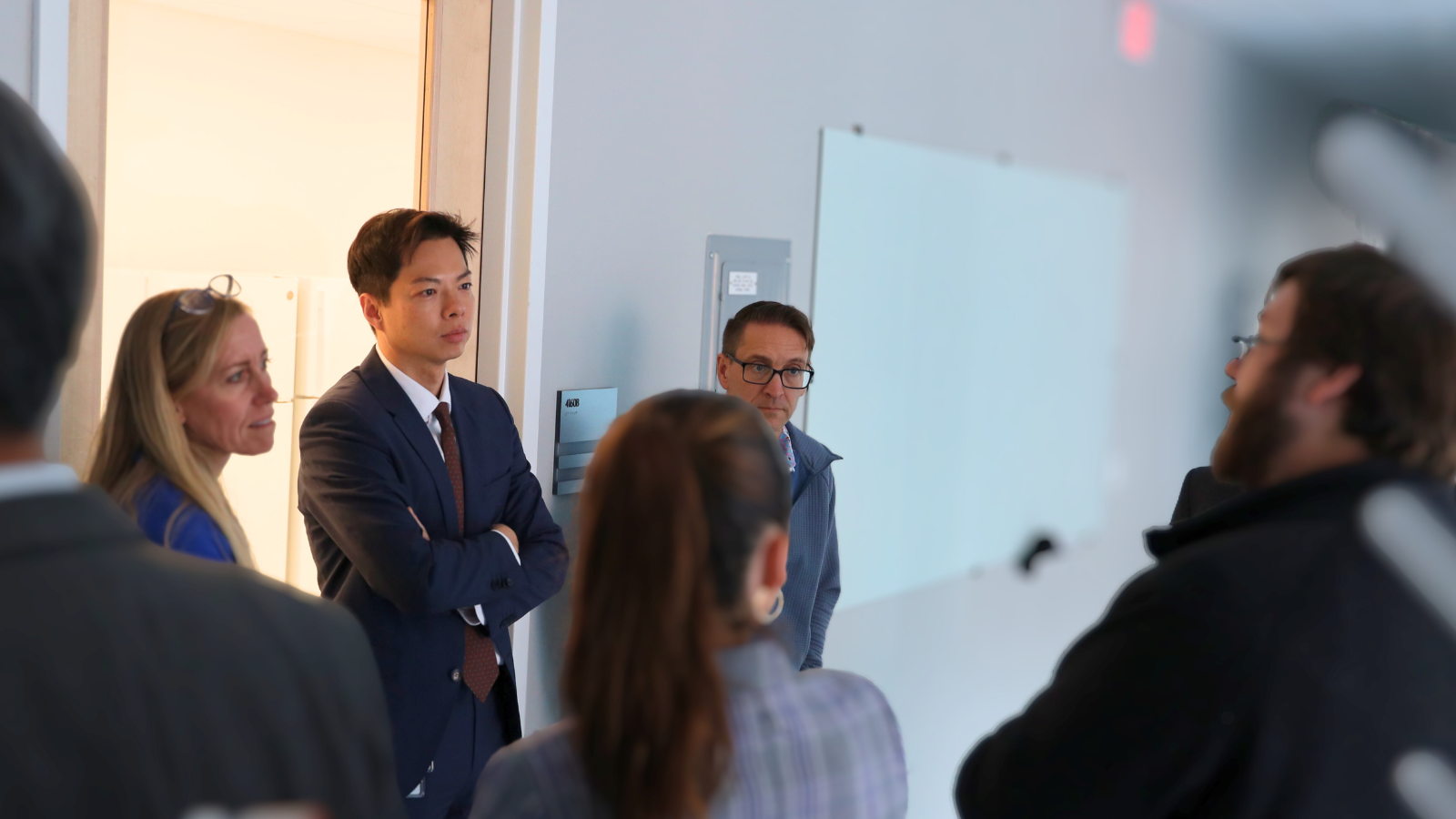News Story
Bioengineering Seniors Learn About Patent Processes

Members of the 2012-2013 BioE Capstone class with Judge Pauline Newman and her staff at the U.S. Court of Appeals for Federal Circuits.
Fischell Department of Bioengineering (BioE) seniors recently learned more about how patents are submitted, reviewed, approved or rejected, and disputed on a field trip to U.S. Court of Appeals for Federal Circuits. The visit was organized by Professor Yang Tao, and hosted by Judge Pauline Newman and her aides.
The seniors were members of the two-semester Capstone Design course, in which teams of students utilize what they have learned throughout their undergraduate studies to conceptualize and develop a prototype biomedical device or process. In the fall semester, while developing their project plans, students also study entrepreneurship, ethics, regulatory issues, and intellectual property. Learning about the patent process has become increasingly important as more teams file for provisional patents on their Capstone inventions by the end of their senior year.
Judge Newman, her aides and her clerks explained how patent-related litigation ends up in court, and the judicial process applied to disputes, by breaking down the cases the students sat in on. She also explained her own role in what can be a complicated decision-making process. Newman and her staff estimated that approximately half of all patent-related appeals are overturned.
"The main thing she mentioned was that being informed...[and] understanding the brief is key," whether one is a judge, lawyer, or simply an observer, says BioE senior Janina Vaitkus. She adds that for her, the trip underscored the necessity of understanding just how complex applying for a patent, and defending it, can be.
Fellow BioE senior Chrissy O'Keefe agrees. "One thing I learned was the importance of using very precise vocabulary when writing a patent, [because] the definition of even a common word can be debated."
Published November 19, 2012









